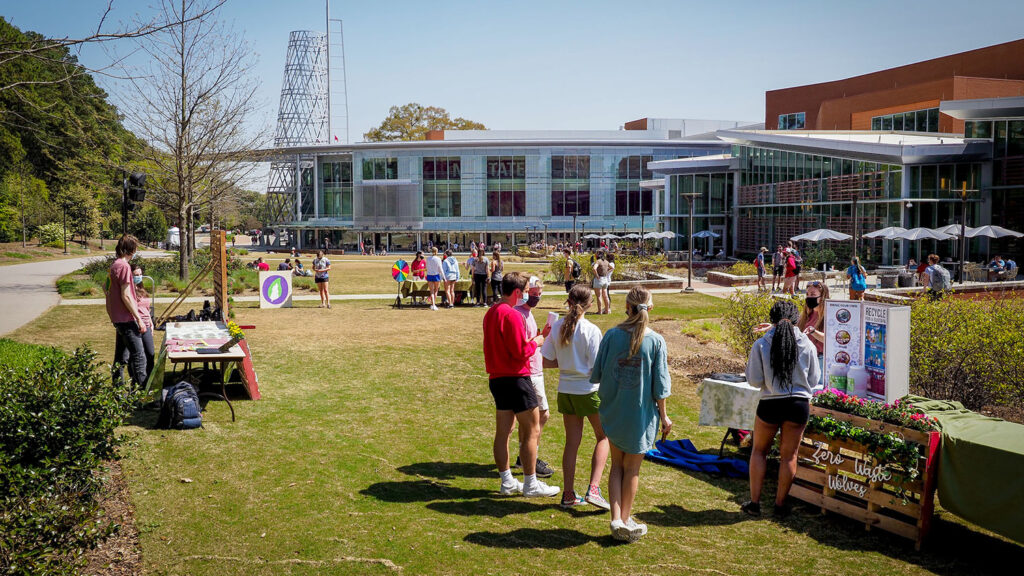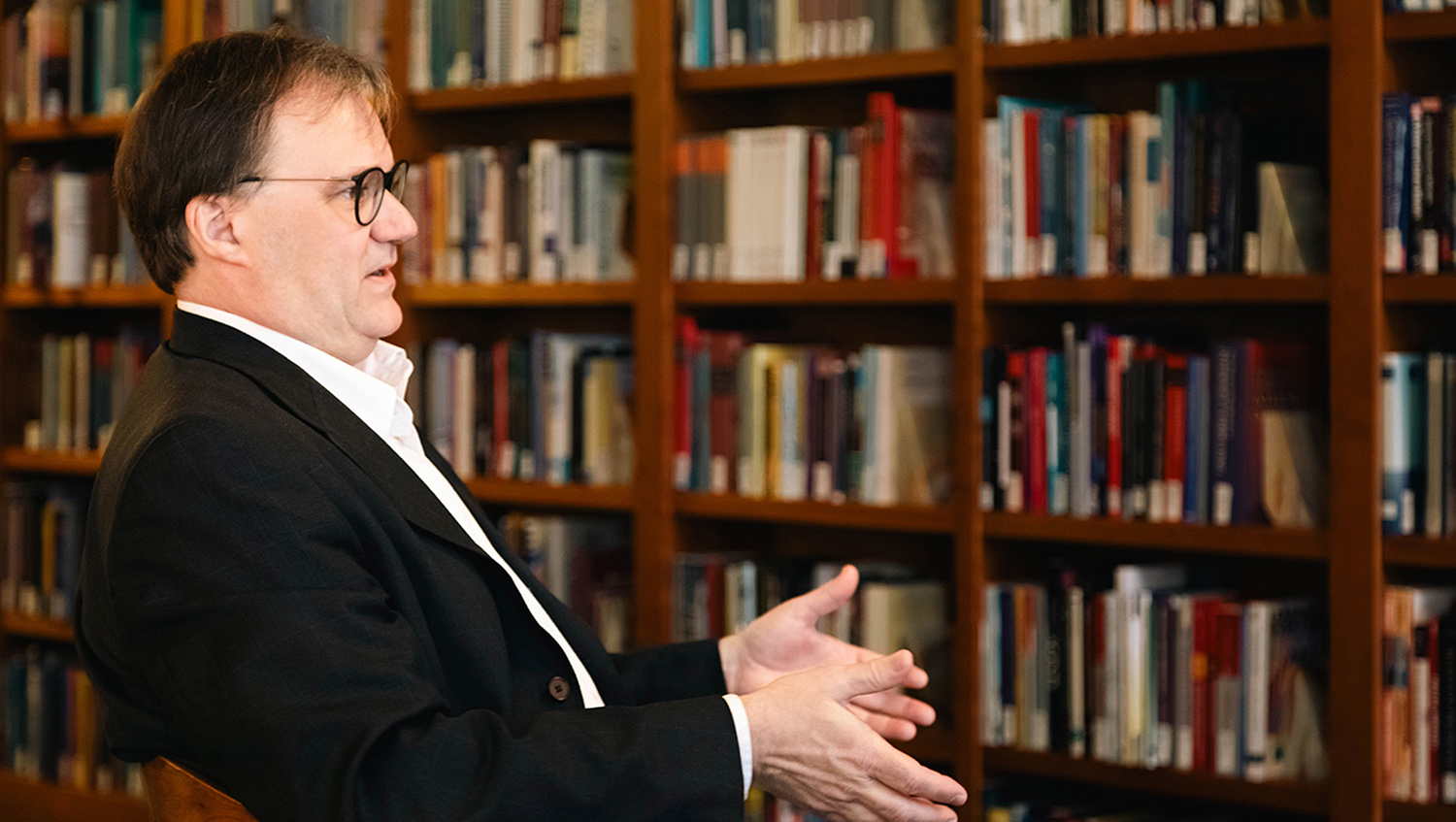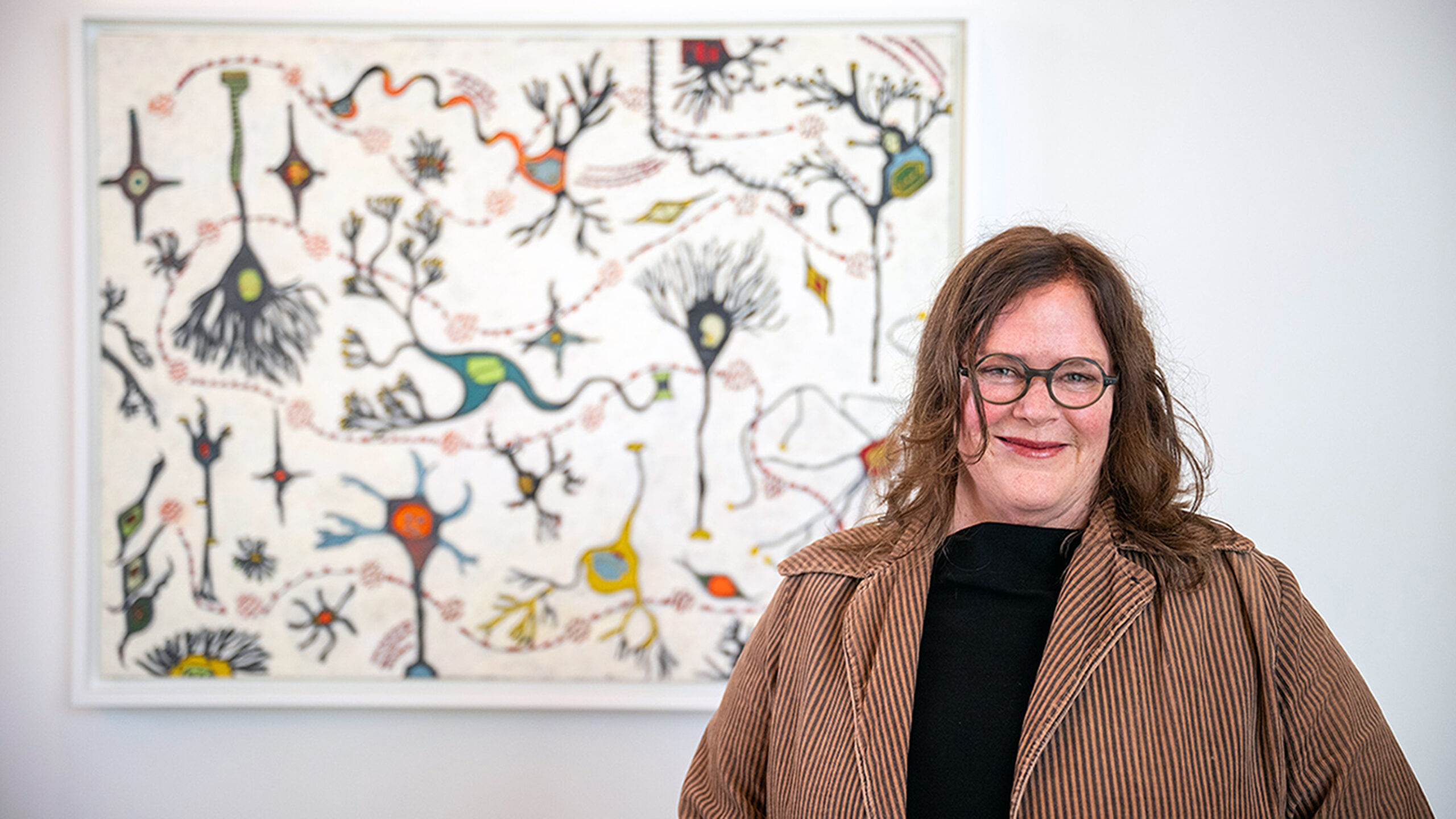NC State is deeply committed to teaching about sustainability. Now, thanks to a team of undergraduate researchers, that campus commitment is codified.
Based on a 15-month study of more than 3,000 undergraduate courses at NC State, the interdisciplinary student researchers created a database of classes aligned with the United Nations’ Sustainable Development Goals (SDGs).
The universitywide resource allows students to identify sustainability-related courses on campus — and supports NC State’s vision as a leading research university addressing world challenges. The UN’s 17 SDGs are a universal call to tackle social and environmental issues such as eliminating hunger and reducing systemic inequalities by 2030.
In collaboration with the university’s Sustainability Office, the research team published the database in mid-April. The team, nicknamed the “SDG Squad,” also recently presented its research findings at the NC State Undergraduate Research and Creativity Symposium April 22-23.

“Our favorite parts of the project include gaining practice in analytical thinking, enhancing our knowledge of the SDGs, and discovering their potential use in the classroom and their link to learning objectives,” says team member and international studies and wildlife biology double-major Vanessa Merritt. “We also will help implement the SDGs on our campus, which is empowering.”
In addition to Merritt, the other student team members are:
- International studies and zoology double-major Brianna Johns who graduated in May 2020
- International studies and poultry science double-major Elisabeth Ramsey
- Environmental sciences major Marica S. Thomas
Interdisciplinary Studies professor Seth Murray leads the undergraduate research team. “The great strengths of this team are the multifaceted, interdisciplinary insights and immediate experience they bring to the project,” he says.
“My wish is they come away with a better understanding of what they want to do — or don’t want to do — in the future.”
With support from the Provost’s Professional Experience Program and the Office of Undergraduate Research, the team spent 15 months analyzing more than 3,000 undergraduate courses at NC State. They compared keywords for each SDG to class descriptions to compile the list of related courses.
Their research uncovered that 10% of undergraduate courses are connected with one or more SDGs, and another 4% are potentially aligned. It also showed that the proportion of SDG-related courses varied significantly by college.
The College of Natural Resources had the largest overall proportion of SDG-related courses at 48%. Next were the College of Humanities and Social Science (16%) and the College of Agriculture and Life Sciences (14%).
“Learning social science-based research has broadened our previous coursework into real-world experiences.”
Murray says faculty members can add or exclude their courses from the database. The timing of the release dovetails with the Office of Global Engagement’s two-year commitment to focus on the SDGs with a program of events beginning in August 2021. The program will help showcase the database as an important and more visible tool, he notes.
The project marks the first time each of the team members has participated in undergraduate research in the social sciences.
“Learning social science-based research has broadened our previous coursework into real-world experiences and made it more tangible,” Merritt says. “The research will also result in something useful and concrete — a searchable database — that can be used by the entire NC State community, and that’s cool.”
- Categories:



